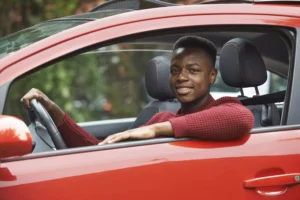Teenage Driver Safety Tips
Driving is a significant milestone for teenagers, but it also comes with substantial responsibility. Teenage drivers are at higher risk of accidents due to inexperience, distractions, and the temptation to engage in risky behavior. Here are crucial safety tips for teenage drivers to help reduce the risks on the road.
Avoid Distracted Driving
Distractions are one of the leading causes of accidents for teenage drivers. This includes using a cellphone, talking to passengers, adjusting the radio, or even eating while driving. It’s important to stay focused on the road at all times.
Tip: Consider enabling “Do Not Disturb” mode on your phone to block notifications and avoid the temptation to text while driving.
Practice Defensive Driving
Being a defensive driver means anticipating the actions of others and being prepared to react to avoid accidents. Teenage drivers should maintain a safe distance from the car ahead and always obey traffic laws, including speed limits.
Tip: Remind your teen to check mirrors frequently and keep an eye out for potential hazards, such as cars suddenly changing lanes or pedestrians crossing unexpectedly.
Obey Speed Limits
Speeding is a significant factor in teenage car accidents. Sticking to the speed limit not only keeps teenage drivers safe but also helps avoid costly tickets and accidents. Slower speeds also provide more reaction time, which is crucial for inexperienced drivers.
Tip: Encourage your teen to practice driving on different types of roads to understand how speed limits vary depending on conditions like residential areas or highways.
Limit Passengers
Having friends in the car can be distracting and increase the likelihood of accidents. In fact, studies show that the risk of a fatal crash increases with each additional passenger. It’s wise to limit the number of passengers your teen can drive, especially during the first few months after getting their license.
Tip: Set a rule of no more than one passenger for the first year of driving to minimize distractions and focus on the road.
Always Wear a Seatbelt
Wearing a seatbelt is the simplest and most effective way to prevent injury in an accident. Yet, many teens forget to buckle up, especially when driving short distances. Seatbelts should always be worn by the driver and every passenger, no matter how short the trip.
Tip: Make it a habit to check that all passengers are buckled up before driving.
Don’t Drive Under the Influence
Driving under the influence of alcohol or drugs is illegal and highly dangerous. Even small amounts of alcohol can impair judgment and reaction times. Parents should have an open conversation with their teens about the risks and legal consequences of driving under the influence.
Tip: Offer your teen an alternative to driving after a party, such as calling you for a ride or using a rideshare service.
Understand the Importance of Road Conditions
Teen drivers should learn how to handle various weather conditions, such as rain or fog, which can increase the risk of accidents. They should also practice driving at night, as reduced visibility can make it harder to spot hazards.
Tip: Schedule practice driving sessions during less-than-ideal conditions, like rainy days, to help your teen develop the skills needed to drive safely in any weather.
Follow Graduated Driver Licensing Laws
Texas has a graduated driver licensing (GDL) program to ensure that new drivers gain experience gradually. These laws place restrictions on nighttime driving and limit the number of passengers teenage drivers can have.
Tip: Make sure your teen follows all GDL restrictions. Violating these laws can result in fines and the suspension or revocation of driving privileges.

Get the Legal Help Your Family Needs After a Teen Car Accident
At Allbee Law Firm, we understand that teenage drivers are more vulnerable to accidents due to their inexperience. If your family has been affected by a car accident involving a teenage driver, our experienced personal injury lawyers are here to help.
Contact us at (972) 848-4848 for a free consultation, and let us guide you through your legal f options.
Teenage Driver Safety Tips FAQs
What is the most common cause of teenage driver accidents?
Distracted driving is the leading cause of accidents for teenage drivers. This includes not only texting or using a phone but also distractions like talking to friends, eating, or adjusting the radio. Since teens are still learning to drive, any distractions make it harder for them to react to sudden changes on the road. Educating teens about these dangers and enforcing rules like “no phones while driving” can help reduce the risk of car accidents.
Are there any special laws for teenage drivers in Texas?
Yes, Texas has a Graduated Driver Licensing (GDL) program that helps new drivers gain experience safely. The GDL program places restrictions on teenage drivers, like not being able to drive between midnight and 5 a.m. and limiting passengers under 21 for the first six months. These rules are meant to keep teens out of high-risk situations, like driving at night or with too many friends in the car, helping to reduce the chance of accidents.
Can a parent be held liable for a teenager's car accident?
Yes, parents can sometimes be held responsible for their teenager’s car accident. This might happen if the parent allows the teen to drive under unsafe conditions, like without insurance or while intoxicated. Also, if the car involved in the accident is registered in the parent’s name, they could be financially liable for damages or injuries. It’s important for parents to make sure their teen is driving safely and has the right insurance coverage to protect them in case of an accident.
